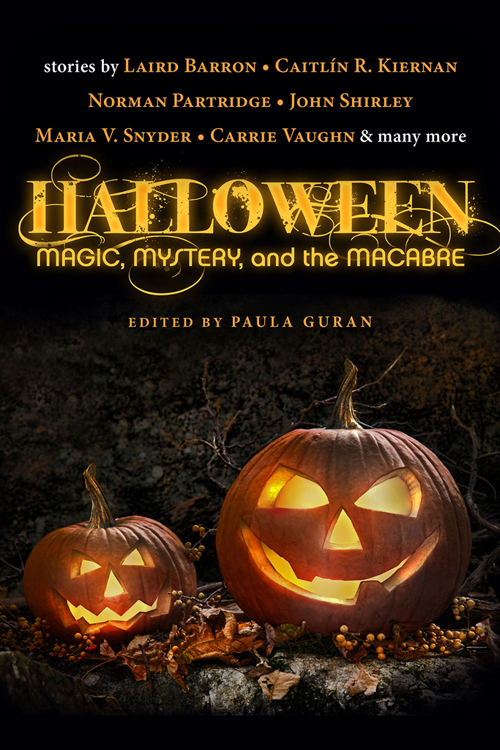 First appeared in Paula Guran's Halloween: Magic, Mystery, and the Macabre.
First appeared in Paula Guran's Halloween: Magic, Mystery, and the Macabre.Malina has inherited her mother's and grandmother's legacy of being a witch. Her mother once left a razor blade in a child's candied apple. Luckily for Malina and her family, the mother wasn't caught, but Malina had to suffer the other children's suspicions.
Malina tries sever the legacy with the help of Guin, a friend. She buys pumpkins, which are supposed to ward off demons, going against what her mother would have done (welcome them into her house). When some of the neighborhood thirteen children bash in her car windows, Guin tries to soothe her into the best reaction towards the kids: offer candy and tell them you're disappointed. But it doesn't go according to the ideal plan
The ending is fascinating. How do we interpret the character's whole-hearted regression? With joy at revenge? or with melancholy? The latter seems the more nuanced response, but the former might seem more appropriate for those with different dispositions.

No comments:
Post a Comment